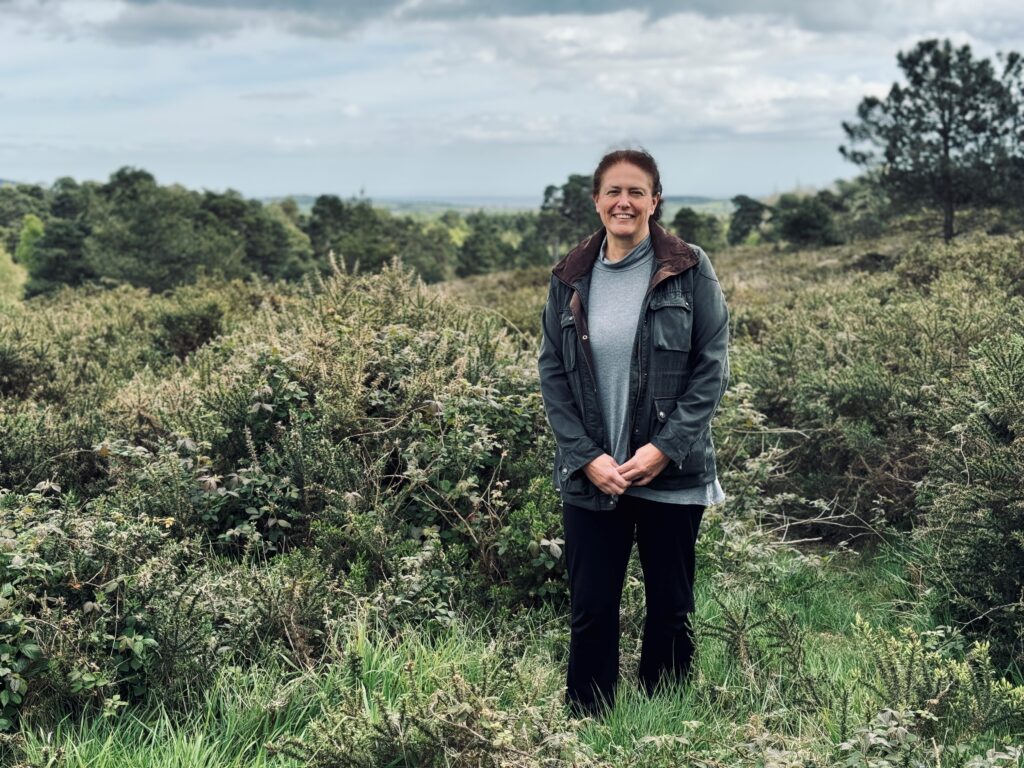An ambitious landscape-scale project to improve the environment for wildlife and for people has been launched by Clinton Devon Estates after a successful bid for Government funding.
Kirstie Ellis has been appointed as Project Manager for “Heaths to Sea: Landscape recovery of the Lower Otter Valley”. Kirstie will lead the two-year development phase of the project.
The development plans will be assessed by the Department for the Environment, Food and Rural Affairs (Defra). If approved, the project will move to the implementation phase, leading to the planting of more woodland, an expansion of wildlife-rich wetland, mitigation of the impact of climate change and improved access to the countryside.
The aim is to bring environmental benefits in harmony with food production in what will remain an important area for farming covering around 5,000 hectares of East Devon and including the internationally important Pebblebed Heaths National Nature Reserve.
It is one of 34 projects across England to share in investment from Defra totalling £25 million, in the second phase of the Government’s Landscape Recovery plan. Heaths to Sea: Landscape Recovery of the Lower Otter Valley, has received £750,000 for the two-year development phase.
The project will include:
- Engaging with local people, neighbouring landowners and other stakeholders to agree landscape priorities.
- Considering what actions are feasible and achievable.
- Assessing what the delivery of the project will cost – and identifying sources of private, as well as public funding.
- Producing a fully costed plan for Government outlining what the gains for nature and society will be in the long-term.
Kirstie comes to the role after two years on the tiny tropical island of St Helena – a British Overseas Territory in the South Atlantic – where she worked for the RSPB as Cloud Forest Project Manager. Her job involved protecting a habitat which supports hundreds of unique species and is a critical source of fresh water for the drought-prone island.

She had earlier worked as a Landscape and Ecology Mitigation Programme Project Manager on St Helena during the building of the island’s airport, and for Devon County Council as a Natural Environment Partnerships Officer.
Kirstie said she had loved her work on St Helena, but returning to the South West to lead the Clinton Devon Estates Heaths to Sea project had been too good a chance to miss. “This is a fantastic opportunity in my home county,” she said.
“I have been in Devon for six or seven years. I grew up in Dorset and I love the South West. I was aware of the Government plans for Landscape Recovery and when I worked for Devon County Council, I came across Clinton Devon Estates and their environmental work.”
Kirstie said there were parallels with her work in St Helena and her new role in East Devon. “One of the interesting things about the Cloud Forest Project was how positive and engaged the local community are,” she said.
“That interest in the local landscape and how it is used, is shared here and we are looking forward to having a similar dialogue on all aspects of land use in East Devon. Although this scheme has a focus on nature recovery, it is not about stopping food production; we believe that nature recovery and agriculture can and indeed must co-exist.”
Dr Sam Bridgewater, Clinton Devon Estates’ Director of Environment Strategy and Evidence, said the project needed a leader with the skills Kirstie brings to the role. She has a biology degree, an MSc in advanced ecology and project management experience in the education and environment sectors.
He said the Heaths to Sea project, one of the most significant to be launched in the area, was a natural progression from the ten-year Lower Otter Restoration Project, which restored the flood plain of the Otter estuary, mitigating the impacts of climate change, most notably sea level rise and providing an expanded wetland habitat for birds and other wildlife.
Engagement with the community, including farming tenants of Clinton Devon Estates, local residents, neighbouring landowners and the local authorities, would be a crucial aspect of the development phase of the project, he said.
“Although the project area is important for agriculture this is not just a normal agricultural environment scheme – we are not just tinkering around the edges. This could lead to major landscape change of great benefit for people and wildlife.”
Tender opportunities linked to the project can be found here under careers and opportunities.